





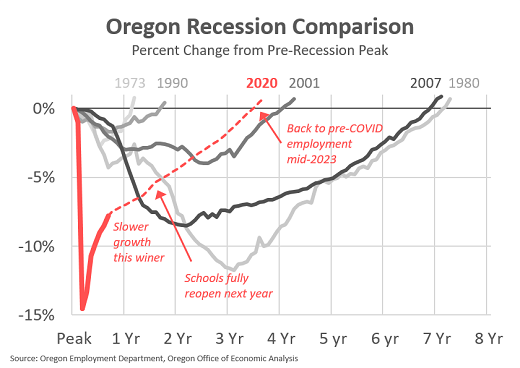
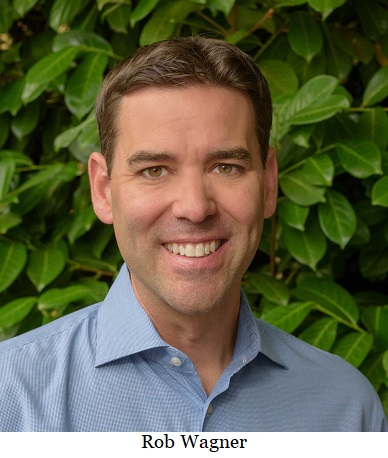 House Republican Leader Christine Drazan (R-Canby) added, “Today’s forecast shows that our state economy is stable, but this is not a reflection of reality for most Oregonians who have been impacted by these shutdowns. The most recent “freeze†will hurt Oregonians and business owners, and make an already tenuous recovery even harder for families. Now more than ever we must protect jobs, support business growth, manage our reserves and control spending to ensure a long-term recovery for all of Oregon.â€
House Republican Leader Christine Drazan (R-Canby) added, “Today’s forecast shows that our state economy is stable, but this is not a reflection of reality for most Oregonians who have been impacted by these shutdowns. The most recent “freeze†will hurt Oregonians and business owners, and make an already tenuous recovery even harder for families. Now more than ever we must protect jobs, support business growth, manage our reserves and control spending to ensure a long-term recovery for all of Oregon.â€
| Post Date: 2020-11-18 09:58:11 | Last Update: 2020-11-18 11:34:55 |

It is time to re-evaluate the metrics and the ever-changing goal posts related to slowing the spread of COVID-19 in our rural, semi-rural, eastern and frontier communities. We have shut down for months, we have met the metrics required, we have followed the goal posts as they’ve moved, we have adhered to the rules, we have slowed the spread—and yet, our counties, communities, small businesses, K-12 schools, childcare and colleges, health departments and more, sit in a stale and stagnant state without forward progress. We have done and continue to do all that is within our capacity to slow the spread of COVID-19, and now, some of our border counties are being directly affected by decisions and actions from outside our state over which we have no control.
This is not a sustainable position for our communities.
1.Restaurants and bars: Our hospitality industry, restaurants and bars must be able to stay open. The data shared by OHA does not show any indication that our restaurants and bars are the cause of increased cases. In addition, our hospitality industry is responsible for employing tens of thousands and Oregonians and keeping our already-fragile economy moving. Our restaurants and bars need to be able to extend their hours beyond the arbitrary closing time of 10:00pm and need to safely expand their indoor occupancy especially as we head into the holiday season and winter when indoor restaurants, lodging and tourism activity will grow. We are at risk for nearly 40% of our remaining businesses closing in the next six months if we do not allow for reasonable expansion of these services and industries.
2.Schools: Our schools need to be allowed to fully re-open for in-classroom learning, and our students need to be allowed to participate in extracurricular activities. All teachers, students, staff, and volunteers that want to return to in-person learning should be able to do so in a safe manner. All teachers, students, staff, and volunteers that desire to continue CDL should be able to do so. If it is safe for college athletes to return to sports, assuredly it is safe for high school students. Parents need to be able to return to work, and our students and teachers need the stability of the classroom.
3.State Agencies: We need to reopen our state agencies at all levels, including and specifically DMVs, across the state. We would argue, and assume you would agree, that our state agencies and state employees are essential. These agencies are funded with public dollars and our public needs full access to these essential services.
4.Religious institutions: Release our churches and places of worship. While outliers will exist as the exception, most churches and places of worship will be and have been more than scrupulous in protecting their congregations from harm from COVID-19. Give pastors, religious leaders and governing boards the latitude to exercise their best judgement for safety.
We have a simple ask. As the leaders chosen by Oregonians to represent their best interests and be their advocates, throughout and across our beautiful state, we would ask that the Governor and Governor’s office participate in these meetings and work with us, assess the proposals and plans we put forward, and consider the options we will be recommending for your consideration and approval. We look forward to hearing from you soon.
The letter has been signed by lawmakers representing overwhelmingly rural areas.
Senator Lynn Findley, Senate District 30
Senator Bill Hansell, Senate District 29
Senator Kim Thatcher, Senate District 13
Senator Fred Girod, Senate District 9
Senator Brian Boquist, Senate District 12
Senator Chuck Thomsen, Senate District 26
Rep. Mark Owens, House District 60
Rep. Greg Barretto, House District 58
Rep. Raquel Moore-Green, House District 19
Rep. Shelly Boshart-Davis, House District 15
Rep.Vikki Breese-Iverson, House District 55
Rep. Mike Nearman, House District 23
Rep. Bill Post, House District 25
Rep. Rick Lewis, House District 18
Rep. Carl Wilson, House District 3
Rep. Elect and Commissioner Lily Morgan, House District 3
Rep-Elect Bobby Levy, House District 58
Bill Harvey Baker, County Commissioner
Mark Bennett Baker, County Commissioner
Bruce Nichols, Baker County Commissioner
Jerry Brummer, Crook County Commissioner
Patti Adair, Deschutes County Commissioner
Tony DeBone, Deschutes County Commissioner
Jim Hamsher, Grant County Commissioner
Sam Palmer, Grant County Commissioner
Pete Runnels, Harney County Commissioner
Patty Dorroh, Harney County Commissioner
Kristen Shelman, Harney County Commissioner
Mae Huston, Jefferson County Commissioner
Donnie Boyd, Klamath County Commissioner
Derrick DeGroot, Klamath County Commissioner
Kelley Minty Morris, Klamath County Commissioner
Mark Albertson, Lake County Commissioner
Brad Winters, Lake County Commissioner
James Williams, Lake County Commissioner
Donald Hodge, Malheur County Commissioner
Larry Wilson, Malheur County Commissioner
Dan Joyce, Malheur County Commissioner
Melissa Lindsay, Morrow County Commissioner
Don Russell, Morrow County Commissioner
Jim Doherty, Morrow County Commissioner
Todd Nash, Wallowa County Commissioner
Craig Pope, Polk County Commissioner
Bill Elfering, Umatilla County Commissioner
George Murdock, Umatilla County Commissioner
John Shafer, Umatilla County Commissioner
Paul Anderes, Union County Commissioner
Matt Scarfo, Union County Commissioner
Donna Beverage, Union County Commissioner
Susan Roberts, Wallowa County Commissioner
Mary Starrett, Yamhill County Commissioner
| Post Date: 2020-11-18 08:51:36 | Last Update: 2020-11-18 13:09:01 |
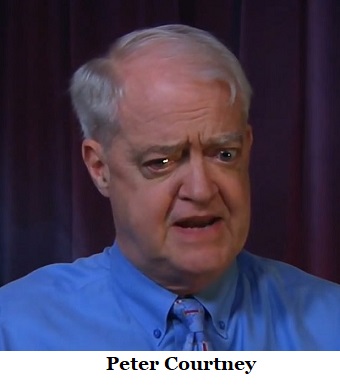
It is not uncommon during organizing efforts for employees to discuss the organizing effort, whether they support or oppose it, amongst themselves and to inquire of management perspectives. While every employee and certainly every member is entitled to their opinion on such an effort, it is important to recognize that employees have a right to discuss these matters. It is not appropriate, and contrary to state collective bargaining laws that protect union organizing efforts, for you in your role as appointing authority to attempt to influence or interfere in any way – in support or opposition. Any organizing effort is inherently an employee driven process and at this time, there is no action for the branch or you to take. As always, we encourage you to listen to the concerns, interests and needs of your staff, but in this circumstance, you should not engage in any discussion about the organizing activity.
State lawmakers are not regarded in law as "employers" of their staff. They are regarded as "appointing authority." Oregon Law does not mention "appointing authority." It's not clear whether any lawmaker, as "appointing authority" can "attempt to influence" the decision of their staff or the staff of other lawmakers to join or not join a union. It is not clear if such a memo is a restriction of the free speech and association rights of lawmakers.
243.670 Prohibition of actions by public employer to assist, promote or deter union organizing; rules.
(1) As used in this section:
(a) “Assist, promote or deter union organizing†means any attempt by a public employer to influence the decision of any or all of its employees or the employees of its subcontractors regarding:
(A) Whether to support or oppose a labor organization that represents or seeks to represent those employees; or
(B) Whether to become a member of any labor organization.
243.672 Unfair labor practices; complaints; filing fees.
(1) It is an unfair labor practice for a public employer or its designated representative to do any of the following:
(a) Interfere with, restrain or coerce employees in or because of the exercise of rights guaranteed in ORS 243.662.
(b) Dominate, interfere with or assist in the formation, existence or administration of any employee organization.
(c) Discriminate in regard to hiring, tenure or any terms or condition of employment for the purpose of encouraging or discouraging membership in an employee organization. Nothing in this section is intended to prohibit the entering into of a fair-share agreement between a public employer and the exclusive bargaining representative of its employees. If a “fair-share†agreement has been agreed to by the public employer and exclusive representative, nothing prohibits the deduction of the payment-in-lieu-of-dues from the salaries or wages of the employees.
(d) Discharge or otherwise discriminate against an employee because the employee has signed or filed an affidavit, petition or complaint or has given information or testimony under ORS 243.650 to 243.806.
(e) Refuse to bargain collectively in good faith with the exclusive representative.
(f) Refuse or fail to comply with any provision of ORS 243.650 to 243.806.
(g) Violate the provisions of any written contract with respect to employment relations including an agreement to arbitrate or to accept the terms of an arbitration award, where previously the parties have agreed to accept arbitration awards as final and binding upon them.
(h) Refuse to reduce an agreement, reached as a result of collective bargaining, to writing and sign the resulting contract.
(i) Violate ORS 243.670 (2).
(j) Attempt to influence an employee to resign from or decline to obtain membership in a labor organization.
(k) Encourage an employee to revoke an authorization for the deductions described under ORS 243.806.
(2) Subject to the limitations set forth in this subsection, it is an unfair labor practice for a public employee or for a labor organization or its designated representative to do any of the following:
(a) Interfere with, restrain or coerce any employee in or because of the exercise of any right guaranteed under ORS 243.650 to 243.806.
(b) Refuse to bargain collectively in good faith with the public employer if the labor organization is an exclusive representative.
(c) Refuse or fail to comply with any provision of ORS 243.650 to 243.806.
(d) Violate the provisions of any written contract with respect to employment relations, including an agreement to arbitrate or to accept the terms of an arbitration award, where previously the parties have agreed to accept arbitration awards as final and binding upon them.
(e) Refuse to reduce an agreement, reached as a result of collective bargaining, to writing and sign the resulting contract.
| Post Date: 2020-11-18 07:58:50 | Last Update: 2020-11-18 08:51:36 |

We recognize the threat that COVID-19 poses to our community and support data driven decisions to limit the spread of this disease, but we do not support the mandate to close gyms, churches, and restaurants as it is not supported by historical data and will only address a small fraction of Oregon’s COVID cases at the cost of thousands of jobs and hundreds of businesses.
Combined, cases that can be traced back to churches, restaurants and gyms make up less than 1% of all the recorded COVID cases in Oregon. Quite simply, there is no actual evidence that restaurants, gyms or churches are driving COVID in our community. In fact, because of the adherence to mask wearing and social distancing, these establishments have been some of the safest in the state.
The closure of these establishments ensures more jobs are lost and Oregonians are left only to rely on a broken unemployment system. Our neighbors and friends won’t be able to pay their mortgages, pay their rent, or buy Christmas presents for their children because of this decision. This is wrong.
Furthermore, we are concerned with the violation of our privacy as the state police and local law enforcement agencies are being ordered to investigate and criminally charge Oregonians based on the number of people they invite into their homes. Legality questions aside, with depression and anxiety levels at an all-time high, creating a new crime to visit your family only hinders those struggling with their mental health.
Data shows us that COVID has been spreading at private social gatherings, and we call on our fellow citizens to be careful and social distance when gathering over the holidays, but we cannot and will not support any attempt by any police agency to violate the sacred space of any Oregonian’s home.
Bill Post – State Representative, House District 25
Colm Willis, Marion County Commissioner
Rick Lewis – State Representative, House District 18
David Brock Smith – State Representative, House District 1
Raquel Moore-Green – State Representative, House District 19
Mark Owens – State Representative, House District 60
Mike Nearman – State Representative, House District 23
Jim Yon – Linn County Sheriff
Tim Knopp – State Senator, Senate District 27
Jack Zika – State Representative, House District 53
Cathy Clark, Mayor of Keizer
Craig Pope, Polk County Commissioner
Danielle Bethell, Marion County Commissioner Elect
Lyle Mordhorst, Polk County Commissioner
| Post Date: 2020-11-17 19:04:17 | Last Update: 2020-11-18 09:29:45 |
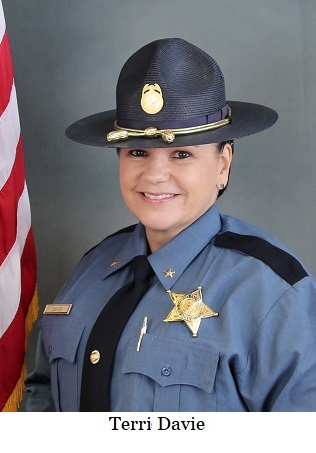
Oregonians have a strong tradition of unifying to protect the most vulnerable members of our communities. As your fellow community members, please join us in adhering to the Governor’s Executive Order during the two-week Coronavirus freeze. As your Oregon Law Enforcement professionals, our primary objective throughout the Coronavirus pandemic has been to take an education first approach and to seek voluntary compliance with each Executive Order. We recognize the inconvenience the pandemic and subsequent restrictions have caused all of us. We also know that the risk to our most vulnerable populations is extremely high at this time and we urge everyone to follow these restrictions in order to protect them. After all, we are all in this together.
With the issuance of the latest Executive Order, Oregon Law enforcement will continue to follow an education first approach. Oregon Law Enforcement will only take enforcement action (criminal citations) as a last resort. As with most enforcement decision making, discretion will be used if/when any Executive Order enforcement action is taken. Oregon Law Enforcement recognizes that we cannot arrest or enforce our way out of the pandemic. We can however work together in following these restrictions to make our communities a safer and healthy place.
We include the following recommendations when it comes to reporting Executive Order violations.
Business/workplace violations-Please report these to Oregon OSHA.
Restaurant/Bars-Please report these violations to OSHA or OLCC.
Oregon Law Enforcement is faced with many challenges one of which is typically receiving more police calls for service than available resources to respond. Because of this, we ask the public to follow the above-mentioned recommendations for reporting alleged violations of the Executive Order.
| Post Date: 2020-11-17 18:16:05 | Last Update: 2020-11-17 18:48:56 |

In terms of individuals, I am not asking you. I am telling you to stop your social gatherings, your informal social gatherings, and your house parties and to limit your social interactions to six and under -- not more than one household -- and I'm asking that immeadiately. I will take stronger legal action as appropriate. I've already directed the superintendent of state police to begin to work with local law enforcement to legally enforce the informal social gathering orders.
All this, despite the fact that many people have pointed out that some of her policies lack scientific foundation. All her policies lack transparency, as she is refusing to honor any public records requests made of her COVID council.| Post Date: 2020-11-17 17:23:31 | Last Update: 2020-11-17 19:04:17 |

“It is critically important as complex water issues in the Klamath basin continue to impact tribal members, water users and stakeholders, that we don’t forget all Oregonians who are depending on us to maintain a commitment to good government.
Any executive branch agreement must include protections for tax dollars currently dedicated to funding our safety net.
During this period of economic uncertainty Oregonians cannot afford to allow the governor to simply write a blank check.
This agreement has no protections against cost overruns and is being entered into within an uncertain litigious and regulatory environment, which will impact state budgets for years to come.
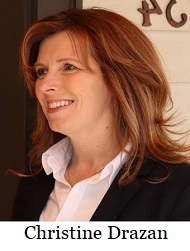 As discussions of the removal of additional dams continue within the Brown administration, the importance of hydropower to Oregon’s economic strength and growth cannot be overstated. Hydropower remains a reliable, clean, emission-free energy source which we must not abandon.â€
As discussions of the removal of additional dams continue within the Brown administration, the importance of hydropower to Oregon’s economic strength and growth cannot be overstated. Hydropower remains a reliable, clean, emission-free energy source which we must not abandon.â€
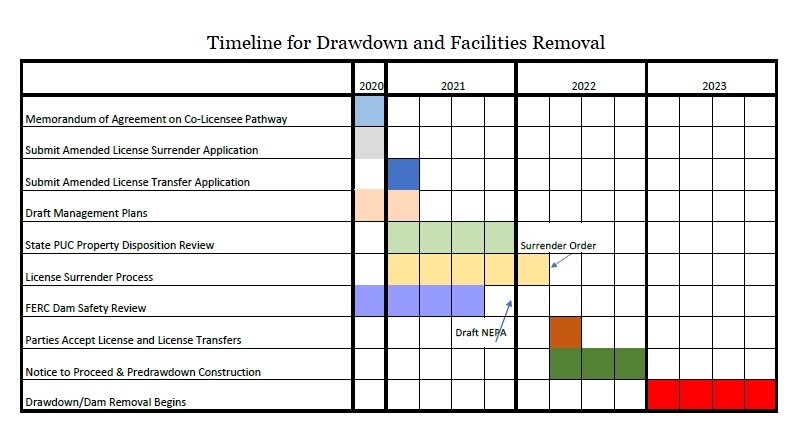
| Post Date: 2020-11-17 15:35:47 | Last Update: 2020-11-17 16:23:30 |
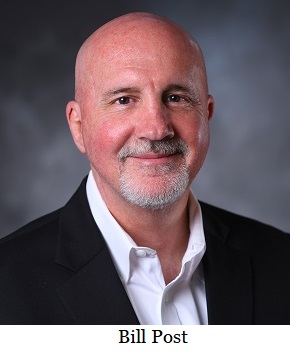
| Post Date: 2020-11-17 06:30:04 |

| Post Date: 2020-11-16 20:15:12 | Last Update: 2020-11-16 20:27:04 |

“Our mission is to safely clear the ash and debris as quickly as possible, and leave Oregonians with a clean site so they can rebuild,†said Kris Strickler, director of the Oregon Department of Transportation. “This will take time, strong partnerships and a lot of hard work, but we’re already well on our way. I encourage every Oregonian who lost a home or business in the wildfires to sign a Right of Entry form with their county, if they haven’t already, to help keep this important work moving forward.â€
Property owners need to sign a Right of Entry form to allow cleanup crews onto their property. Cleanup crews will remove ash and structural debris, hazard trees, concrete foundations, and burned vehicles. Submit your Right of Entry form online and for more information, call the wildfire debris cleanup hotline: 503-934-1700.| Post Date: 2020-11-16 13:24:50 | Last Update: 2020-11-16 14:02:22 |

The IBEW has been asked to assist workers in the Oregon Legislature in forming a Union to address their representational needs. We look forward to working with the Legislative Administration Committee to ensure your employees have a voice in the workplace they are so passionate about. The IBEW has a history of transcending politics and working with public entities in the collective bargaining process, producing agreements based on partnership and collaboration.
Local 89 is committed to a process that provides a path to representation for these workers, while respecting the laws and institutions of the State. We anticipate that the State will do likewise, respecting the rights of their employees.
| Major donations from International Brotherhood of Electrical Workers Local 280 PAC this year | ||
| Date | Donor | Amount |
| 11/10/2020 | Oregonians to Maintain Community Standards (1579) | $2,430 |
| 10/21/2020 | Jackie for Salem (19242) | $1,000 |
| 10/21/2020 | Friends of Dan Rayfield (14046) | $1,000 |
| 10/21/2020 | Elect Ashley Carson Cottingham (20526) | $1,000 |
| 10/21/2020 | Jason for Bend (18661) | $1,000 |
| 10/21/2020 | Megan for Bend (20694) | $1,000 |
| 10/21/2020 | Broadman for Bend (20610) | $1,000 |
| 09/30/2020 | Melanie For Bend (20331) | $1,000 |
| 09/30/2020 | Friends of Val Hoyle (13967) | $1,000 |
| 09/02/2020 | Friends of Dan Rayfield (14046) | $1,000 |
| 09/02/2020 | IBEW Political/Legislative Dept Voluntary Fund (fed) | $5,000 |
| 08/19/2020 | Jackie for Salem (19242) | $1,000 |
| 08/19/2020 | Elect Ashley Carson Cottingham (20526) | $1,500 |
| 08/19/2020 | Committee to Elect Shemia Fagan (14993) | $2,500 |
| 08/19/2020 | Jason for Bend (18661) | $1,000 |
| 08/19/2020 | Friends of Julie Fahey (17469) | $1,000 |
| 08/05/2020 | Oregonians to Maintain Community Standards (1579) | $2,430 |
| 05/13/2020 | Oregonians to Maintain Community Standards (1579) | $2,823 |
| 04/15/2020 | Jackie for Salem (19242) | $1,000 |
| 03/26/2020 | Yes for LCC Bond (20245) | $10,000 |
| 03/15/2020 | Oregonians to Maintain Community Standards (1579) | $2,823 |
| Post Date: 2020-11-16 09:29:20 | Last Update: 2020-11-16 09:48:08 |

"Governor Brown's one-size-fits-all approach to shutting down our state is far too extreme. Our eastern and rural Oregon communities in House District 60 will suffer to the point of no return. I am fully committed to stopping the spread of COVID-19, but these extreme regulations do not match the metrics.
Once again, our local elected leaders, public health authorities and businesses were not invited to the table to have a conversation about COVID-19 in our communities. Furthermore, evidence is lacking to support the arbitrary, targeted closures and restricted activities of certain businesses over others. Our businesses across Oregon will not survive another shutdown and thousands of Oregonians will lose their jobs, again, right before the holidays.
The secondary impacts of preventing the spread of COVID are significant and cannot be ignored; we've seen a devastating increase in suicide especially among youth and young adults, drug and alcohol use, and domestic and sexual violence. Our elderly family members have gone months without visitors or family and are dying alone.
I implore the Governor to reconsider this one-size-fits-all freeze, and speak with our businesses, local leaders and authorities to find a different path forward before it is too late for our families, communities, and our state."
"Businesses throughout Oregon have proven that they can make the operational changes necessary to keep their employees and their customers safe, even during this unprecedented pandemic. What we need now is a plan to address the root of the problem without causing additional harm to Oregonians throughout the state," said Brandt.
Critics are noting the statewide orders are being met with a spectrum of reactions ranging from at least minimal criticism to outright rebellion in nearly all demographics.| Post Date: 2020-11-15 13:16:48 | Last Update: 2020-11-15 13:39:06 |